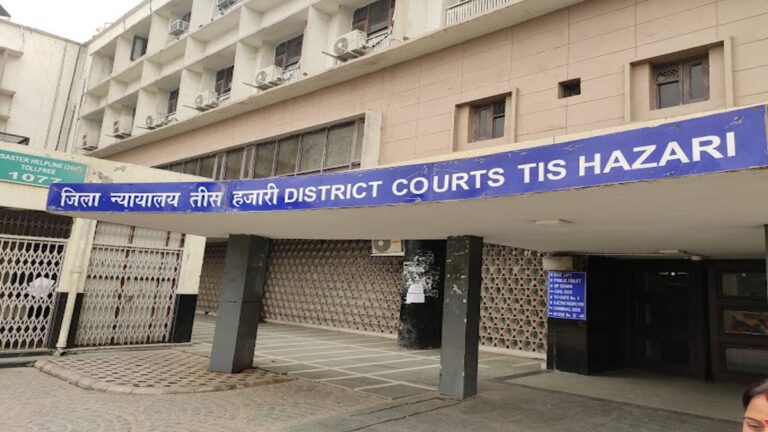Presiding Officer Vacancy At The Central Government Industrial Tribunal-cum-Labour Courts [Last Date: 03.04.2025]
Presiding Officer Vacancy At The Central Government Industrial Tribunal-cum-Labour Courts [Last Date: 03.04.2025] The Ministry of Labour and Employment invites applications for the post of Presiding Officer in The Central Government Industrial Tribunal-cum-Labour Courts at Guwahati. Name of the Post…
Dwarka Court Bar Association Election Results 2025

New Delhi Bar Association (NDBA) (Patiala House Court) Election Results 2025

ROHINI COURT BAR ASSOCIATION (RCBA) Elections Results 2025

Tis Hazari Bar Association Elections Result 2025

Deputy Chief Legal Aid Defense Counsel Vacancy At District Legal Services Authority, West Godavari, Eluru [Last Date: 18.03.2025]
Registrar Vacancy At Indian Institute of Information Technology, Nagpur (IIITN) [Last Date: 17.03.2025]
Consultant Vacancy At Indian Institute Of Foreign Trade (IIFT) [Last Date: 17.03.2025]
Registrar Vacancy At Indian Institute Of Information Technology Design And Manufacturing, Kurnool [Last Date: 16.03.2025]
Registrar Vacancy At Indian Institute Of Information Technology Design And Manufacturing, Kurnool [Last Date: 16.03.2025] Indian Institute of Information Technology Design and Manufacturing, Kurnool invites online applications for the post of Registrar via Direct Recruitment/Deputation/Contract Basis. Name of the Post…
Chief Manager (Legal) Vacancy At ITI Limited
Joint Advisor Vacancy At Telecom Regulatory Authority Of India (TRAI), New Delhi [Last Date: 15.03.2025]
Research Assistant Vacancy At The Centre For International Trade And Business Laws, NALSAR University Of Law, Hyderabad
Legal Resource Person Vacancy At Assam Panchayati Raj Institutions [Last Date: 15.03.2025]
K. Samba Moorthy Vs. Sanjiv Chadha & Ors.
Ramesh Baghel Vs. State of Chhattisgarh & Ors.
S. Shobha Vs. Muthoot Finance Ltd.
T. Rajamoni S/o. Thason (D) through LRS. Vs. The Manager, Oriental Insurance Company Ltd. and Ors.
Harshit Harish Jain & Anr. Vs. State of Maharashtra & Ors.
Madhushree Datta Vs. State of Karnataka & Anr.
M. Venkateswaran Vs. State represented by the Inspector of Police
Thammaraya and Anr. Vs. State of Karnataka
Legal Aid Chief/Deputy Chief/Assistant Vacancy At District Legal Services Authority, District Guna Court, Madhya Pradesh

Legal Researcher Vacancy At The Rajasthan High Court, Jodhpur

Assistant (Enforcement And Legal) Vacancy At Warehousing Development And Regulatory Authority (WDRA)

